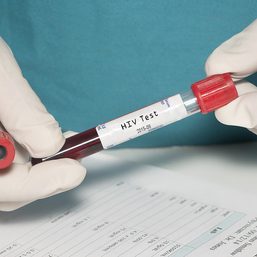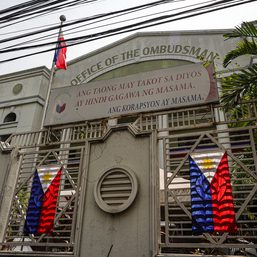SUMMARY
This is AI generated summarization, which may have errors. For context, always refer to the full article.

MANILA, Philippines – There is no legal basis for the Philippine Regulatory Commission (PRC) or any government agency to grant temporary licenses to nursing graduates who did not pass the licensure exam, PRC Commissioner Jose Cueto said on Thursday, June 22.
This comes after Health Secretary Ted Herbosa’s proposal to hire nursing graduates who didn’t pass the exam – but got a 70% to 74% mark – in hospitals to make up for the demand for nurses in the Philippine health system. By law, the exam’s passing rate is at least 75%, and the graduate must not have gotten a rating of below 60% in any subject.
Cueto referred to Republic Act No. 9173, the law that governs the nursing profession in the Philippines.
“Doon ho sa RA 9173, wala hong probisyon na nagbibigay ng kapangyarihan ang PRC or any government agency na magbigay ng temporary license sa mga nursing graduates na ‘di pa nakakapasa ng Nurse Licensure Examination,” Cueto said in a Laging Handa briefing on Thursday.
(Under RA 9173, there is no provision that gives authority to the PRC or any government agency to give temporary licenses to nursing graduates who have not passed the Nurse Licensure Examination.)
Still, Cueto noted part of Herbosa’s proposal that the non-passer nurses would still work under the supervision of licensed nurses.
“We call this quality assurance mechanisms. They will be monitored, and everything they do must be cleared with their supervisors…. Because the number one objective of health professions is to take care of patient safety and patient welfare. We won’t sacrifice that,” he said in a mix of English and Filipino.
In a separate interview on Thursday with CNN Philippines, Herbosa, a professor, said that one exam does not determine the capabilities of a nursing graduate.
“You cannot judge a nurse who finished four years of college with one singular test. Sometimes, that one singular test is not a very strong assessment of who they are and what they can do,” said Herbosa. A 74%-rate passer may have only missed one or two questions in the exam, he added.
“I’m only trying to fix a problem of lack of nurses in the government hospitals. Lack of nurses means lack of services,” he said.
Herbosa’s proposal drew mixed reactions. Herbosa has said that nurse groups he’s spoken to agree with his idea. Meanwhile, Senate Minority Leader Aquilino “Koko” Pimentel III called the proposal a “short-term solution.”
“The root causes of the shortage lie in the significant number of nurses leaving the country to seek higher-paying jobs abroad. We should take a look at nurses’ salaries and provide more incentives for them to stay and practice in our nation,” said Pimentel.
He highlighted the importance of keeping the standard of a 75% minimum passing score in protecting the integrity of the testing system.
“Improve the exam and make sure the questions ask test the competence and readiness of the nursing examinee. Make the exam direct to the important knowledge and skill set for nurses,” Pimentel said.
Herbosa rejected the idea of lowering the board exam’s passing rate.
“I am not proposing a move of the passing rate,” he said in the CNN Philippines interview. “I am helping the people who didn’t make 75%… So by making them work as nurses or assistant nurses, their chances to pass is higher. Why did I limit to the 70% to 74%? Because they’re the ones I know, if we train them, we mentor them, we give them money for review classes, they’ll probably pass it in the next round.”
Cueto said that the passing rate of the nursing board exam was 74% in November 2022 and May 2023. Over the last six years, he added, around 70,000 out of 133,000 examinees passed the exam, yielding a 60%-passing rate.
In a statement on Friday, June 23, Herbosa said that he met with PRC commissioners and its Board of Nursing, saying they “understand” his view and are willing to help find solutions.
“There are still many options despite legal limitations which I understand. However, it’s good to know they are with me to find the solutions to the 4,500 unfilled nurse items in DOH hospitals,” said Herbosa.
The health chief also expressed gratitude to Labor Secretary Bienvenido Laguesma and PRC commissioner Charito Zamora, who were supportive in finding “legal ways” to solve the country’s health manpower problems, he said.
The Philippines is one of the world’s top suppliers of nurses. During the height of the COVID-19 pandemic, the administration of then-president Rodrigo Duterte set a cap on yearly deployment of health workers, with revisions of up to 7,000.
The Department of Migrant Workers said earlier in June that it was considering a program where countries that want to hire Filipino nurses must contribute to a fund that would give scholarships to aspiring nurses. – Rappler.com
Add a comment
How does this make you feel?










There are no comments yet. Add your comment to start the conversation.